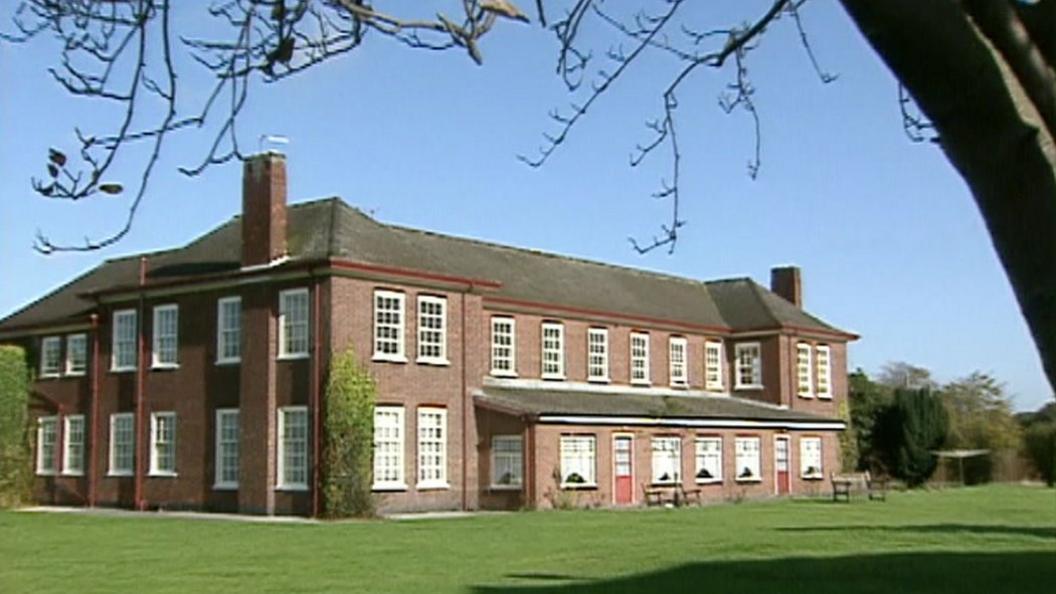Aston Hall: Victims criticise government's compensation deal
- Published
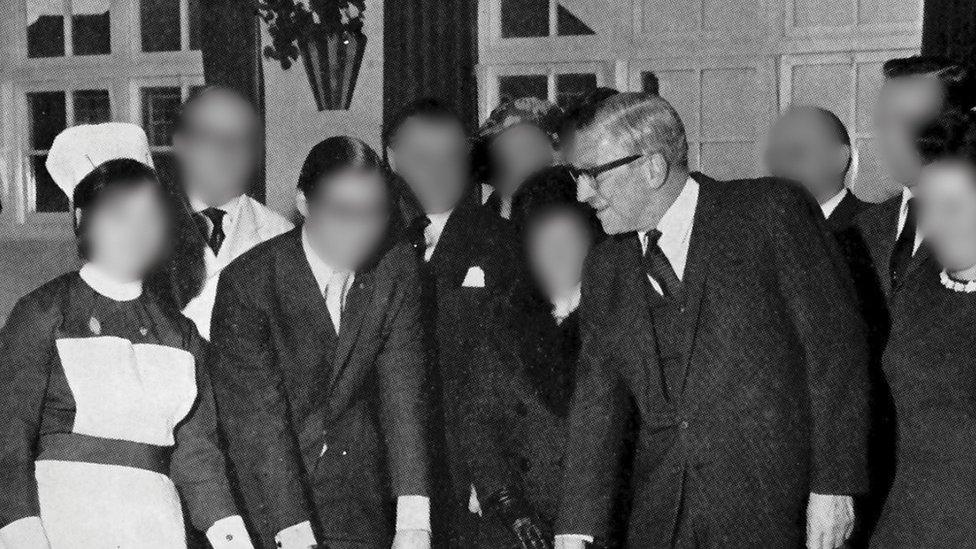
An independent report found Dr Kenneth Milner administered "truth drug" sodium amytal to children
Victims of abuse and unauthorised drug treatments at a mental health hospital have called a government compensation scheme "an insult".
At least 130 people said they suffered physical and sexual abuse at Aston Hall, Derbyshire, in the 1960s and 70s.
The allegations surround the late Dr Kenneth Milner, who also administered "truth drug" sodium amytal to children.
Last week the Department of Health agreed to pay at least £8,000 each to victims in a settlement.
'I could have died'
Police have said Dr Milner, who ran the hospital from 1947 to the 1970s and died in 1975, would have been questioned over rape and cruelty claims if he were still alive.
Justin Stubbings - who spent nine days at the facility in 1969, aged 14, for petty pilfering and truancy - described the payments as a "con".
"They have agreed to pay for the [drug] treatment but are not going anywhere near the sexual [and] physical abuse," he said.
"There seems to be no understanding of what that did to us.
"I just feel like we didn't matter then and we don't matter now."
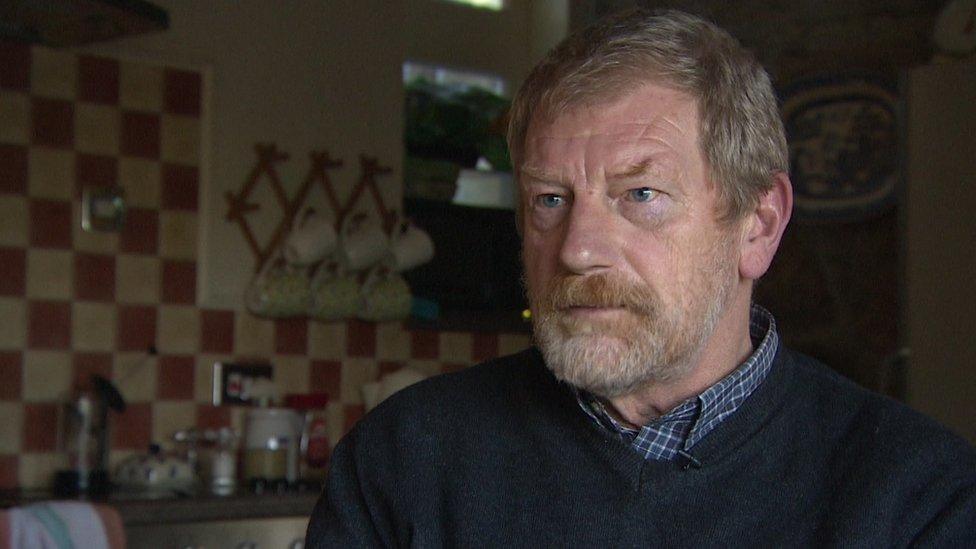
Former resident Justin Stubbings said he felt "stitched up" by the compensation scheme
Mr Stubbings said Dr Milner drugged him with sodium amytal and ether.
He then repeatedly beat him after finding out he was gay, as "a very crude attempt at aversion therapy".

How the compensation scheme works
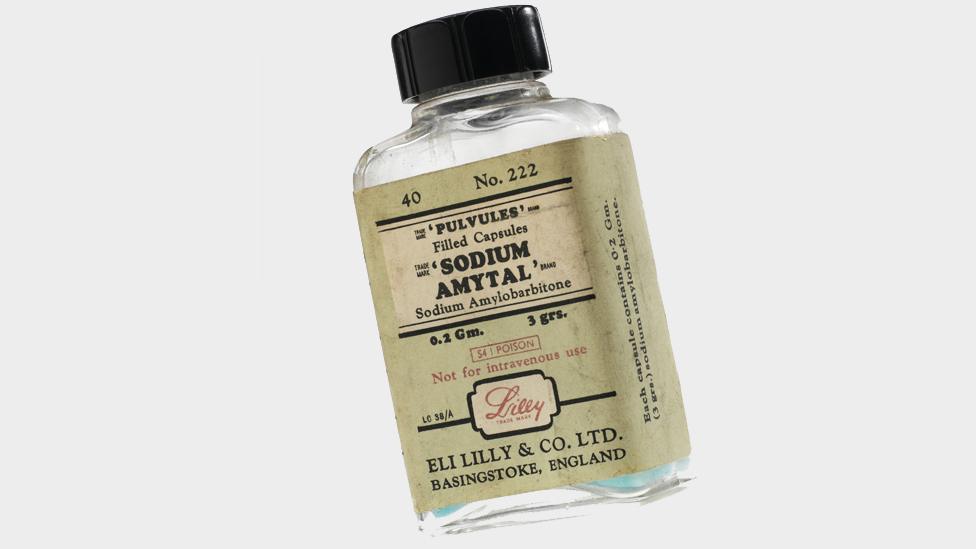
Sodium amytal, a so-called truth serum, was originally used on traumatised soldiers
If an individual had at least one treatment of sodium amytal, they would receive an initial payment of £8,000
Former residents who had between two and five treatments would receive an additional £2,500 for each extra treatment
For between six and 15 treatments, an individual would receive an extra £1,500 per treatment
Thereafter a victim would receive an additional £1,000 per treatment, up to a maximum of £50,000

Mr Stubbings, 65, from Cornwall, said: "When I came round in the morning, my hands and my ankles were tied.
"I was on my own in this cell, heavily sedated, I could have died very, very easily."
It is believed Dr Milner was using sodium amytal as part of "narcoanalysis, external" - the uncovering of repressed traumatic memories, which was practised on shell-shocked soldiers in World War Two.
"I only had the one treatment, only £8,000 for a life that was totally messed up because of what they did to me," Mr Stubbings said.
'An insult'
David Martin, 58, spent 11 months in the facility between 1974 and 1975 after being put in foster care.
He said he thought the compensation was "a bit low".
"It's still with us, it'll never leave us," he said.
"Some people will only receive £8,000 as they only had treatment, and it's affected them the same as others."
Aston Hall victims talk of 'truth drug' doctor abuse
Former resident Barbara O'Hare, 60, was 12 when she spent eight months at Aston Hall in 1971.
She said: "What's your childhood worth?
"It's not about the money. It's an insult, but £800m would still be an insult."
She said she still suffered from complex post-traumatic stress disorder and flashbacks.
Dianne Collins, of Nelsons Solicitors, has been representing 64 of the alleged victims.
"The fact is if you have one treatment that, possibly, is just as traumatic as somebody who had more treatments," she said.
"But we've had to find some way of compensating people."
She added because the sodium amytal treatments were documented, "we can see they took place".
The solicitor said proving physical and sexual abuse was "much more difficult" legally because "Dr Milner's not here to answer those allegations".
A Department for Health and Social Care spokesman said NHS Resolution - the health service's litigation authority - had "worked closely with lawyers for the former residents", which included "an element for therapy costs".

The Aston Hall independent report
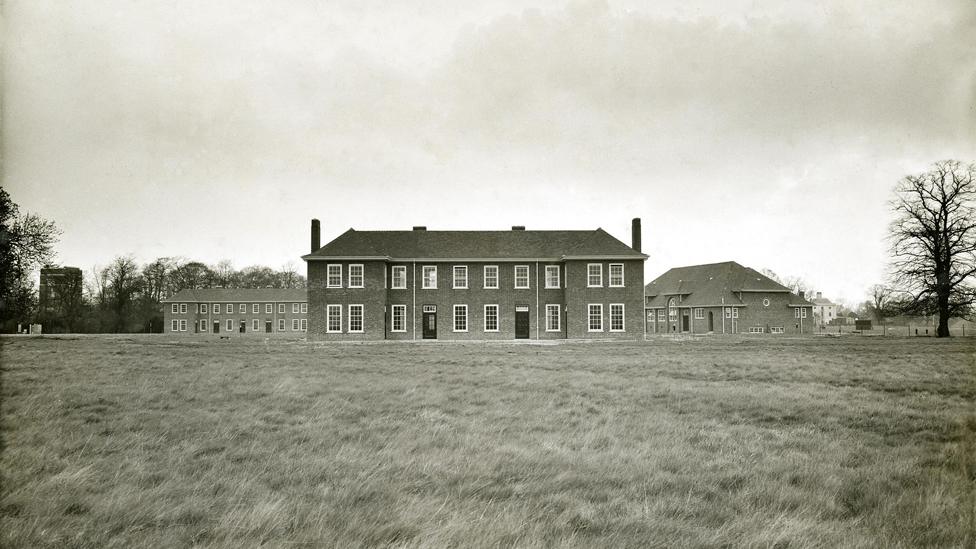
Many buildings at Aston Hall, including those pictured, have been demolished
Mental health facility Aston Hall opened in the 1920s and catered for 100 children from both sexes, but took adults as well.
Aston Hall closed in the 1990s but comments on a website about derelict buildings brought its grim history to light.
In 2018, an independent report found children were given sodium amytal, which was not authorised for use on children.
The report found victims had been given the drug, stripped, abused and put in straitjackets., external
The majority of allegations centred around Dr Kenneth Milner.
In 2018, Derbyshire Police said Dr Milner would have been questioned over rape and cruelty claims if he was still alive.

Follow BBC East Midlands on Facebook, external, on Twitter, external, or on Instagram, external. Send your story ideas to eastmidsnews@bbc.co.uk, external.
- Published9 August 2019

- Published27 July 2018

- Published25 July 2018
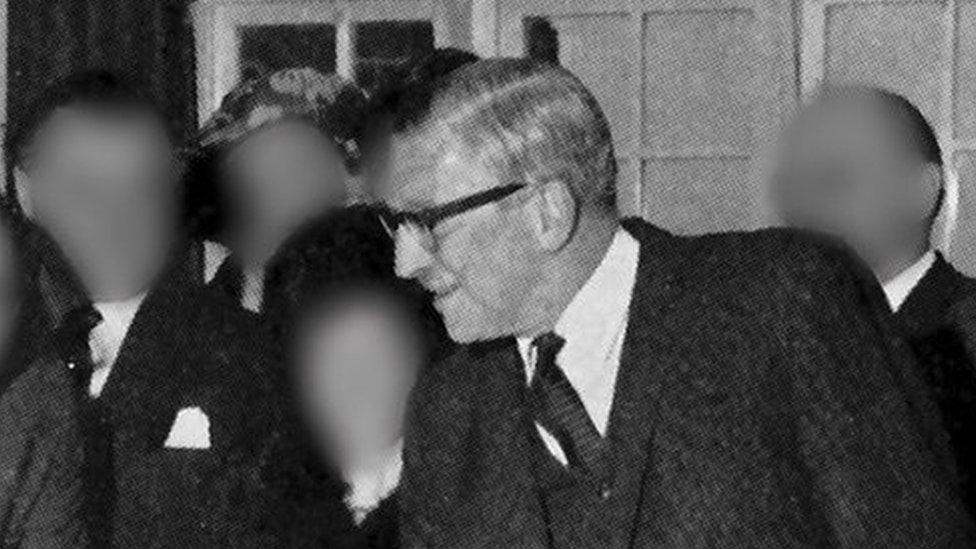
- Published19 July 2016
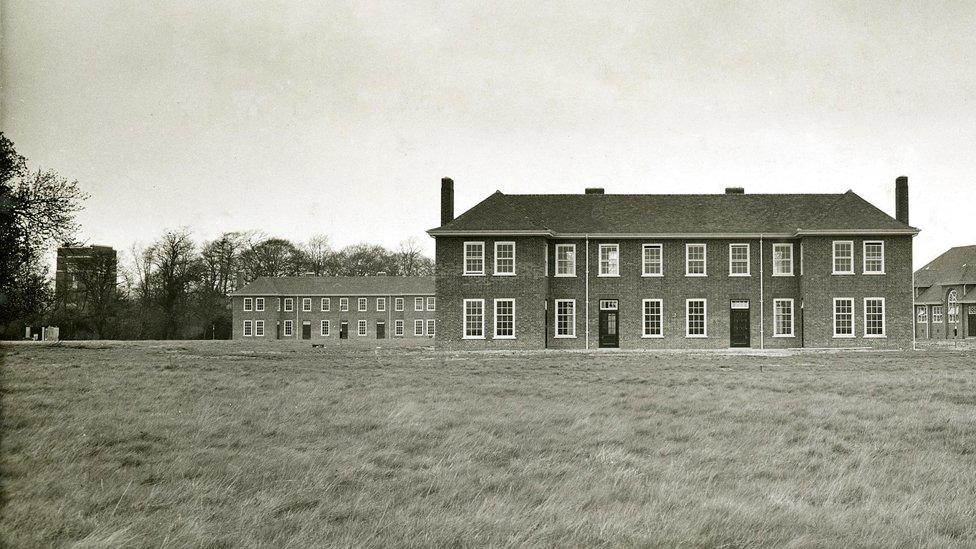
- Published2 March 2016
